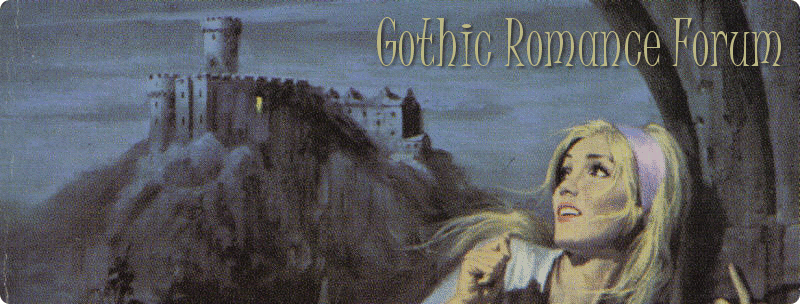08-08-2011, 01:04 AM
(08-07-2011, 08:12 PM)Cherchezlafemme Wrote: I think it will exist in e-books, of course. But don't count out the older generation--back in 2009, news reports stated the average age of a Kindle buyer was over 40! Gothic romance could make a comeback if those who wrote them (myself included) focused on crafting compelling and romantic stories within the confines of the genre, rather than knocking off Victoria Holt or Phyllis A. Whitney, et al (hence why the market was glutted with pale imitations and ended up exhausting the genre). I know there's a hunger out there for gothic romances of old, and it's up to us to show readers that the genre isn't merely about virginal, innocent heroines, brooding older heroes, and spooky castles!
I'm glad you're optimistic. I am cautious, though, about coming to conclusions about why the genre ended -- or, more precisely, why publishers ceased to print Gothics. I think it's reasonable to say that changes in social attitudes, the influence of graphic sex in movies and TV (I'm no prude, but I don't want to follow my friends into the bedroom either), and shifts in readership background had as much to do with the decline of the genre as the diluting of quality within it. Remember, also, that the decision to quit publishing Gothics was an across-the-board one throughout the publishing world, and it happened within a very short time period. This coincided exactly with the arrival of the bodice-rippers in the late 1970s.
This also brings up the question of originality and freshness within a genre. As I've said before, one reader's cliché is another's favorite and familiar trapping. It is, really, the clichés that define a genre. How far can one change the expected features of a Gothic romance novel before it ceases to be that and becomes something else? In one sense, I believe, an author should write in the genre for precisely the same reasons she reads it. And I would go so far as to argue that this involves writing your book as if its ideal reader were a newcomer to the genre. You would want to distill the very best things about the genre for that reader to relish, so that he would be hooked. (That is, instead of wanting to innovate and break free of the usual elements simply because you, the writer, have read too many Gothics and find those elements stale. If you change the genre, the success of the results should still depend on their quality, rather than merely because they are new in a sensational way. In my opinion, of course -- I don't mean to sound dogmatic or doctrinaire.)
In other words, I believe the bottom line is the quality of the fiction -- even if it DOES conform to the more old-fashioned features of a traditional Gothic (if this is the author's choice).



